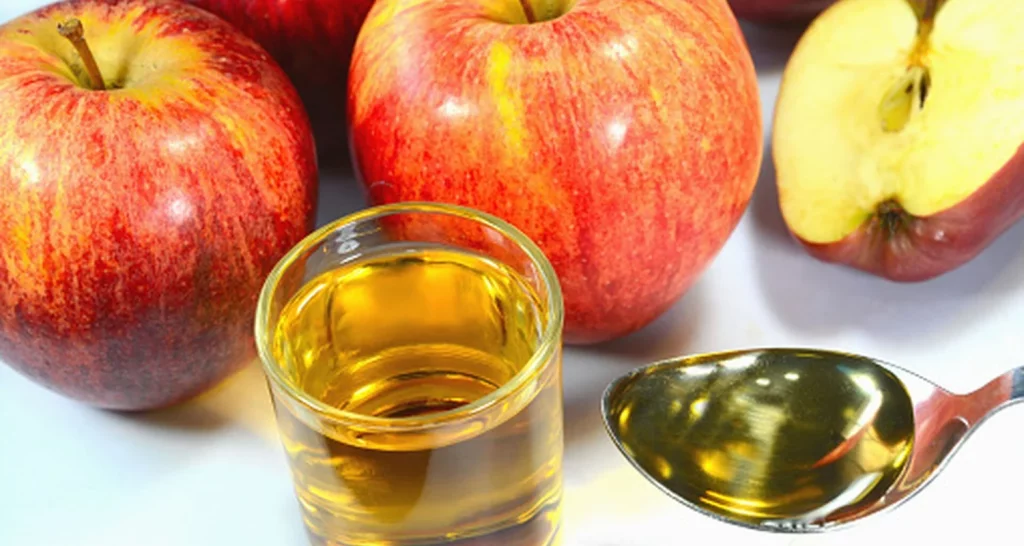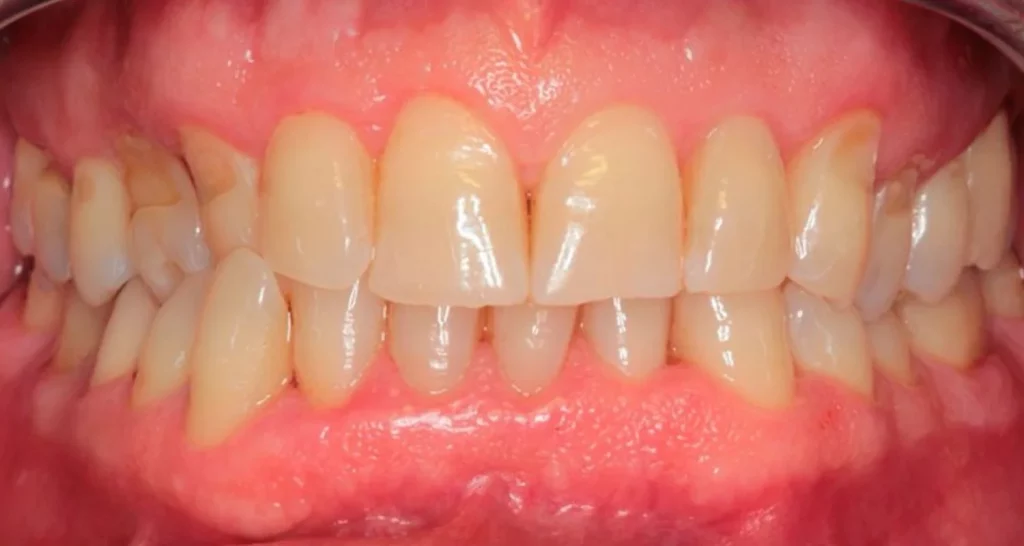Last Updated on: 13th December 2025, 05:07 am
Effectiveness of Using Apple Cider on Teeth: A Complete Guide
Although multiple oral healthcare products have been developed in recent years, natural remedies are still widespread. Apple cider vinegar has gained popularity not only in culinary dishes but also for its potential health benefits. One area that has generated interest is its impact on dental health. In this article, we will explore the effects of apple cider vinegar on teeth, discussing its possible advantages and disadvantages.
The Composition of Apple Cider Vinegar

Before delving into its various effects, it is essential to understand what apple cider vinegar contains. It is a fermented product derived from crushed apples. The main active component is acetic acid, which is responsible for its tart taste and possible health benefits. In addition, it contains small amounts of vitamins, minerals, and beneficial compounds such as polyphenols.
How does it Affect the Teeth?
Apple cider vinegar is of interest when it comes to its impact on dental health. Many people wonder how this product will affect their teeth since it has been promoted as a natural remedy for various purposes.
1. Whitening properties
One of the principal benefits of apple cider is the ability to whiten teeth. The acetic acid in apple cider helps remove surface stains on teeth, making them look whiter. This natural remedy is often preferred over commercial teeth whitening products that may contain harsh chemicals.
2. Antibacterial properties
Apple cider vinegar also has antibacterial properties, which can be beneficial for oral health. The acetic acid in vinegar can inhibit the growth of harmful bacteria in the mouth, reducing the risk of cavities and gum disease. A study published in 2022 demonstrated that apple cider vinegar could reduce the accumulation of plaque on teeth and gum inflammation in children with cerebral palsy, demonstrating that it could be a complement to oral care in people with difficulties performing oral hygiene.
3. pH balance
Maintaining the proper pH balance in your mouth is essential for good oral health. Despite its acidity, apple cider vinegar can help regulate pH levels when used in moderation. A balanced pH can contribute to a healthier oral environment and prevent tooth enamel erosion.
Risks of Using Apple Cider on Teeth

Despite the potential benefits that apple cider vinegar brings to dental health, it is essential to understand the risks associated with its use. Below are some of the main risks to be aware of before using this product on your teeth:
●Tooth enamel erosion: Apple cider is highly acidic, meaning it can erode tooth enamel over time. Enamel is the protective layer of your teeth, and wear and tear can lead to tooth sensitivity and increase the risk of cavities. A group of scientists carried out an experiment, where they microscopically evaluated the effect of various acidic drinks on 105 extracted teeth. They found that the highest degree of erosion was caused by apple cider.
● Tooth sensitivity: By damaging tooth enamel, the acid present in apple cider can cause tooth sensitivity in some people. This can manifest as pain or discomfort when consuming hot, cold, or sweet foods or drinks.
● Difficulty speaking and eating: Excessive use of undiluted apple cider can cause an uncomfortable sensation in the mouth, making it difficult to speak and eat.
● Risk of allergies: Some people may be allergic to apple cider, experiencing skin or mouth reactions, which may aggravate dental problems.
● Interaction with medications: The acid in apple cider vinegar may interact negatively with some medications. Therefore, if you are taking medication, it is always advisable to consult a health professional before using apple cider on teeth.
● Lack of solid scientific evidence: Although many people claim that it works, a lack of solid scientific research on the effects of apple cider on dental health means its risks and benefits are not yet fully backed by science.
To reduce the aforementioned risks, it is recommended to dilute the vinegar with water before using it on your teeth and rinse your mouth thoroughly afterward. If you experience problems such as tooth sensitivity or discomfort, it is essential to stop using it and consult an oral health professional.
How to Safely Use it for Dental Health?

If you decide to incorporate this vinegar into your dental care routine, we leave you some tips to do it safely:
● Dilute: Always dilute apple cider vinegar with water before using it to reduce its acidity.
● Limit the frequency: Do not use the vinegar for dental purposes more than 2 times a week to avoid possible enamel erosion.
●Rinse well: After using apple cider, rinse your mouth thoroughly with water to remove any residue.
●Consult a dentist: If you have concerns about using apple cider on teeth, consult your dentist for personalized advice.
Conclusion
Apple cider on teeth may have some benefits for dental health, but it should be used with caution because it can also have harmful effects on oral health. The use of this vinegar for dental purposes should be done with caution and under the guidance of a health professional. Maintaining good oral hygiene practices, such as regular brushing, flossing, and regular visits to the dentist, remains essential for a healthy smile.
Frequently Asked Questions
Is it safe to use apple cider vinegar on your teeth?
Enamel begins to weaken at a pH of 5.5 or lower, and dentin softens at a pH of 6.5 or lower. Apple cider vinegar is well below both thresholds! Allowing these strong acids to come into contact with your teeth puts you at risk of acid erosion.
How can I use apple cider vinegar without damaging my teeth?
You can minimize damage to tooth enamel by diluting vinegar (one or two tablespoons in a large glass of water), using a straw, and rinsing your mouth with water afterward. Or take vinegar (any type of vinegar) as an ingredient in foods, for example, as part of a salad dressing.
Can apple cider vinegar stain teeth?
Apple cider vinegar, specialty teas, and plain, unsweetened coffee can be harmful to your teeth. These drinks are highly acidic, which means they can erode tooth enamel quickly. Not only does this make you more prone to cavities and tooth discoloration, but it also increases your risk of broken teeth and tooth sensitivity.
Is it advisable to rinse your mouth with apple cider vinegar?
Due to the acidity of apple cider vinegar, which can damage tooth enamel, it is wise to dilute it before using it as a mouthwash. Combine a teaspoon of apple cider vinegar with a cup of water for best results. Then, use it as you would any other mouthwash.
Share:
References
1. Abidia, R. F., El-Hejazi, A. A., Azam, A., Al-Qhatani, S., Al-Mugbel, K., AlSulami, M., & Khan, A. S. (2023). In vitro comparison of natural tooth-whitening remedies and professional tooth-whitening systems. The Saudi Dental Journal, 35(2), 165–171. https://doi.org/10.1016/j.sdentj.2023.01.007
2. Apple cider vinegar. (Jul 7, 2023). WebMD. https://www.webmd.com/diet/apple-cider-vinegar-and-your-health
3. Asaad, N., & Laflouf, M. (2022). Effectiveness of apple cider vinegar and mechanical removal on dental plaque and gingival inflammation of children with cerebral palsy. Cureus, 14(7). https://doi.org/10.7759/cureus.26874
4. Frothingham, S. (Apr 26, 2019). Apple cider vinegar teeth. Healthline. https://www.healthline.com/health/apple-cider-vinegar-teeth
5. Gurarie, M. (Mar 3, 2022). Is apple cider vinegar safe for my teeth? Verywell Health. https://www.verywellhealth.com/apple-cider-vinegar-teeth-5217470
6. Horton, J. (Jul 18, 2023). What apple cider vinegar can (and can’t) do for you. Cleveland Clinic. https://health.clevelandclinic.org/exploring-the-health-benefits-of-apple-cider-vinegar/
- Nayibe Cubillos M. [Author]
Pharmaceutical Chemestry |Pharmaceutical Process Management | Pharmaceutical Care | Pharmaceutical Services Audit | Pharmaceutical Services Process Consulting | Content Project Manager | SEO Knowledge | Content Writer | Leadership | Scrum Master
View all posts
A healthcare writer with a solid background in pharmaceutical chemistry and a thorough understanding of Colombian regulatory processes and comprehensive sector management, she has significant experience coordinating and leading multidisciplina...Recent Posts















